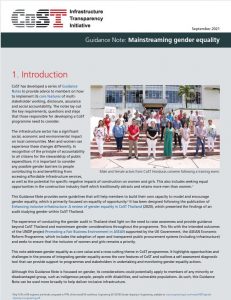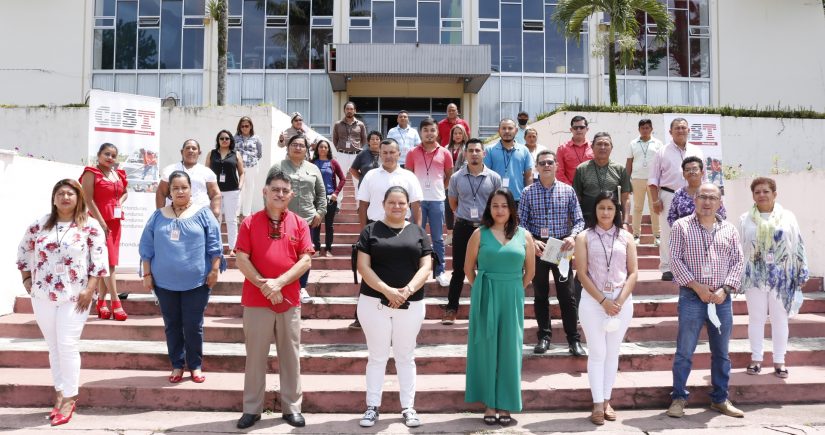It is well known that the construction industry traditionally attracts and retains more men than women. To take the UK, in 2018 only 12% of UK engineers were female compared to a 47% female composition in the overall UK workforce.
 Over the last year CoST has increased its focus on promoting greater gender-equality across its member programmes and the infrastructure sector. This includes promoting more equal representation in the composition of member secretariats, the multi-stakeholder groups (MSGs) that guide programme delivery and the assurance teams members work with to put key infrastructure issues in the public domain. Importantly, members have also amplified the voice of females in their civic engagement activities. This has promoted female empowerment and ensured the project issues that negatively impact women are brought to light.
Over the last year CoST has increased its focus on promoting greater gender-equality across its member programmes and the infrastructure sector. This includes promoting more equal representation in the composition of member secretariats, the multi-stakeholder groups (MSGs) that guide programme delivery and the assurance teams members work with to put key infrastructure issues in the public domain. Importantly, members have also amplified the voice of females in their civic engagement activities. This has promoted female empowerment and ensured the project issues that negatively impact women are brought to light.
To build on these initial actions, today we publish Mainstream gender-equality in infrastructure, our latest guidance which shows how a gender-inclusive approach can be incorporated across the core features of the CoST approach in data disclosure, assurance multi-stakeholder working and social accountability.
In data disclosure – we encourage gender-inclusive information to be included in our data standards. In this regard members can capture information such as whether projects will improve the lives of women and girls or information from procuring entities on the ratio of jobs held by women across the project cycle. This latter information is already being captured by CoST Honduras on its SISOCS platform.
By promoting greater disclosure of this data we can understand how gender-inclusive the infrastructure sector is within our members countries. Using the data, members can take action to help mainstream gender equality across their programmes and the sector.
-Author of the guidance, Maria da Graça Prado.
In assurance – our recommendations include the key gender-related information assurance teams could ask for. For example, do companies bidding for projects encourage equality of opportunity in the processes they take in engaging sub-contractors and local labour?
In multi-stakeholder working – recommendations focus on putting in place requirements for greater female representation on MSGs to offering a regular space to discuss the perceived barriers towards gender equality.
 In social accountability – we encourage the good practice of members such as Uganda and Guatemala to be followed. These members have actively promoted the participation of females in their civic engagement and civic monitoring activities.
In social accountability – we encourage the good practice of members such as Uganda and Guatemala to be followed. These members have actively promoted the participation of females in their civic engagement and civic monitoring activities.
In Uganda, its community events known as ‘barazas’ have promoted female inclusion by holding meetings in easily accessible locations and ensuring the provision of childcare, transport and toilets. The programme also collects data on the female attendance at the events to help with future engagement.
Whilst focussed on gender equality, the guidance can also be used to increase a more inclusive approach in the sector more broadly, helping to promote the say of other minorities in infrastructure delivery.
Useful links
- Download the guidance here
- Interviews with CoST Board observer Manuela Di Mauro and Eng. Pamela Acheng, CoST Uganda
